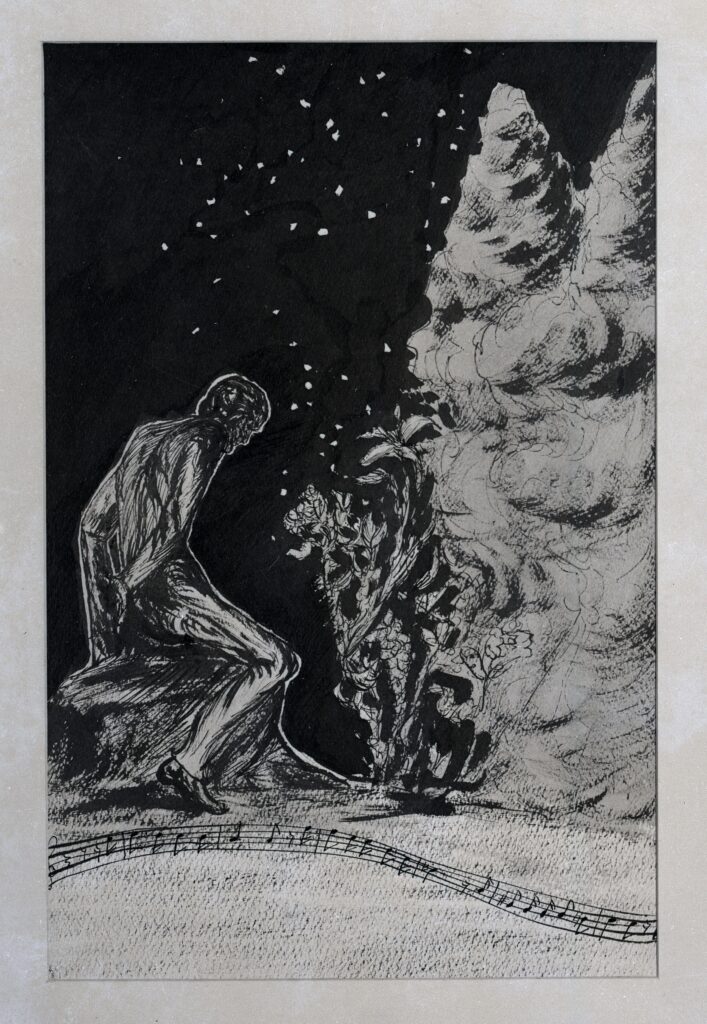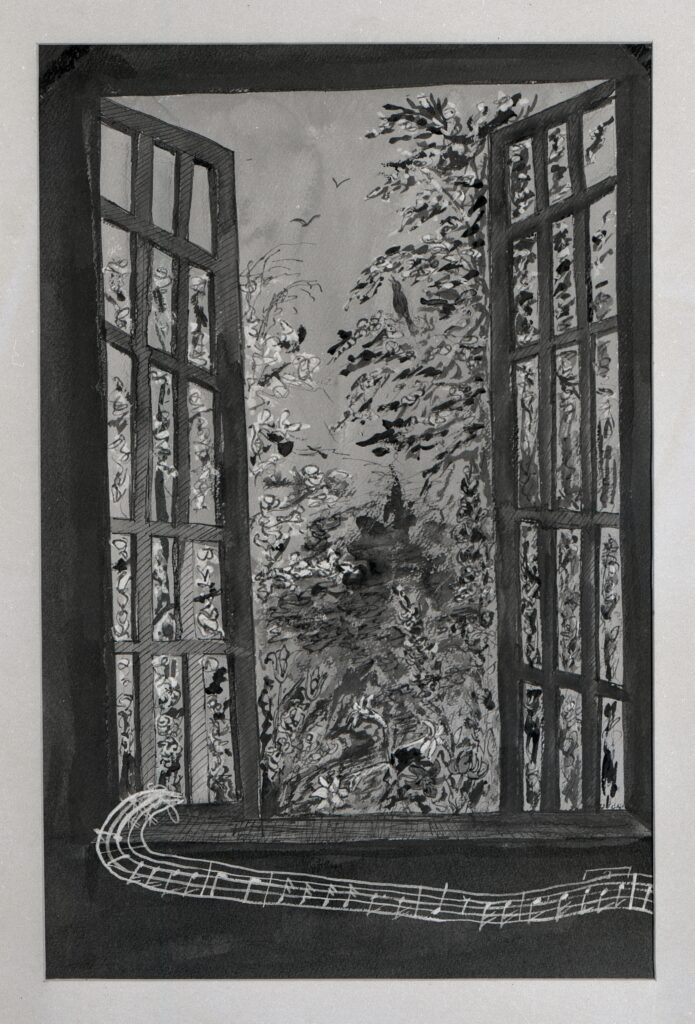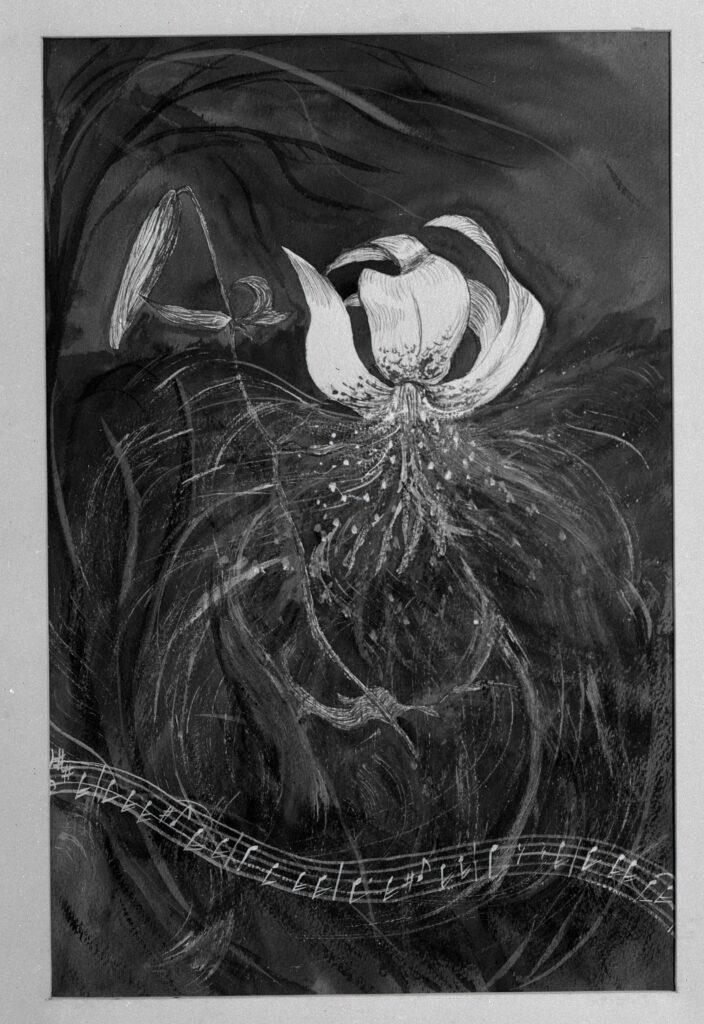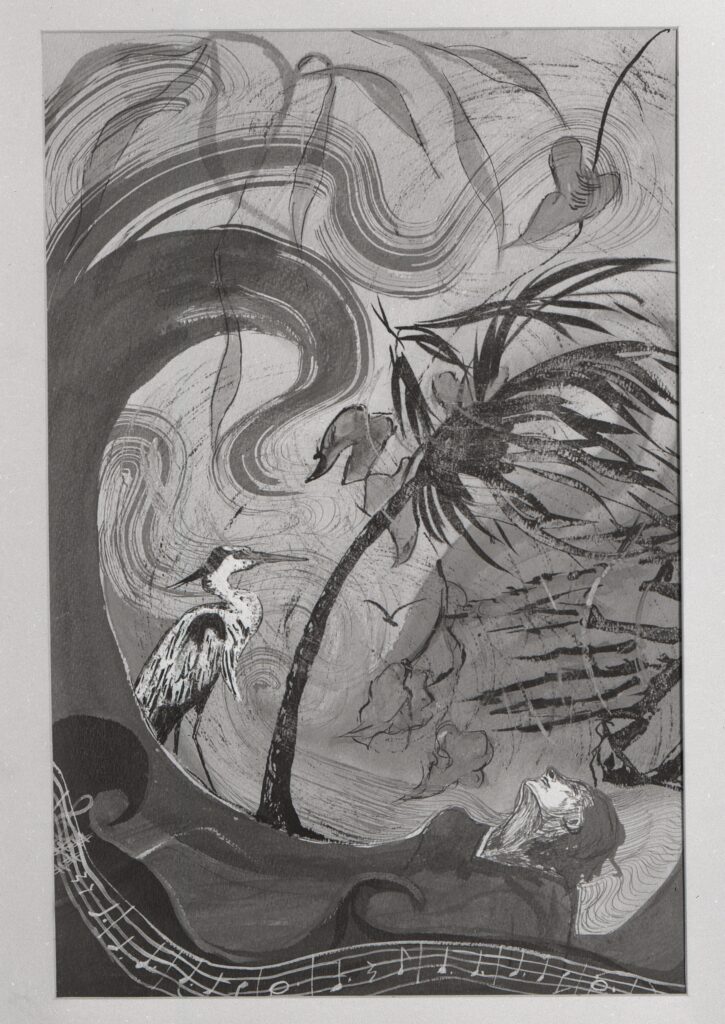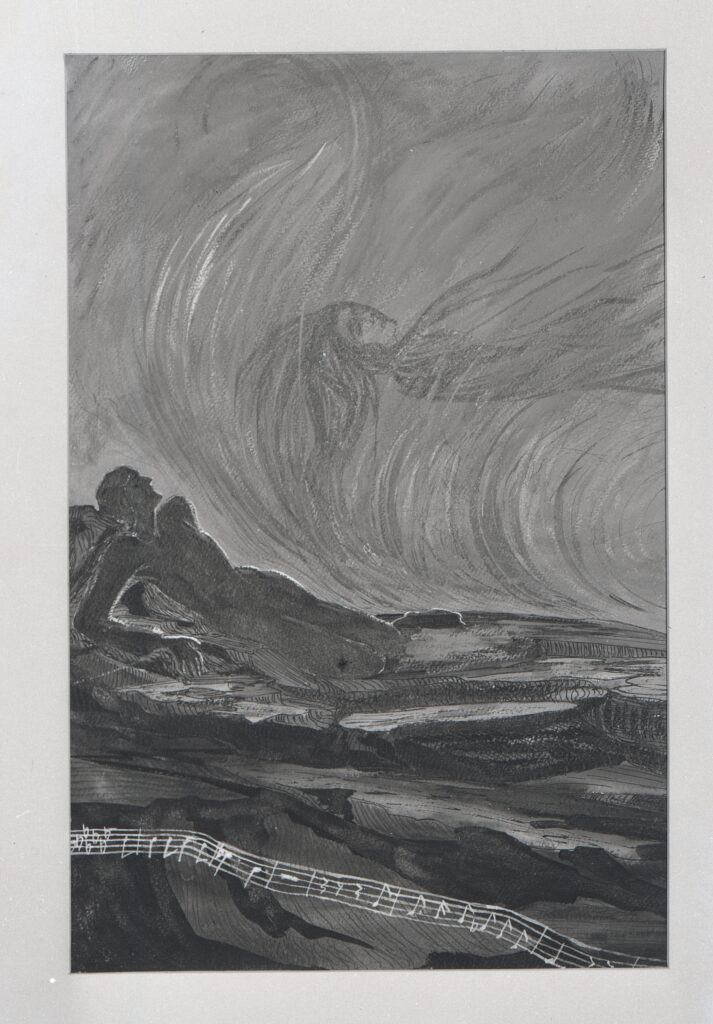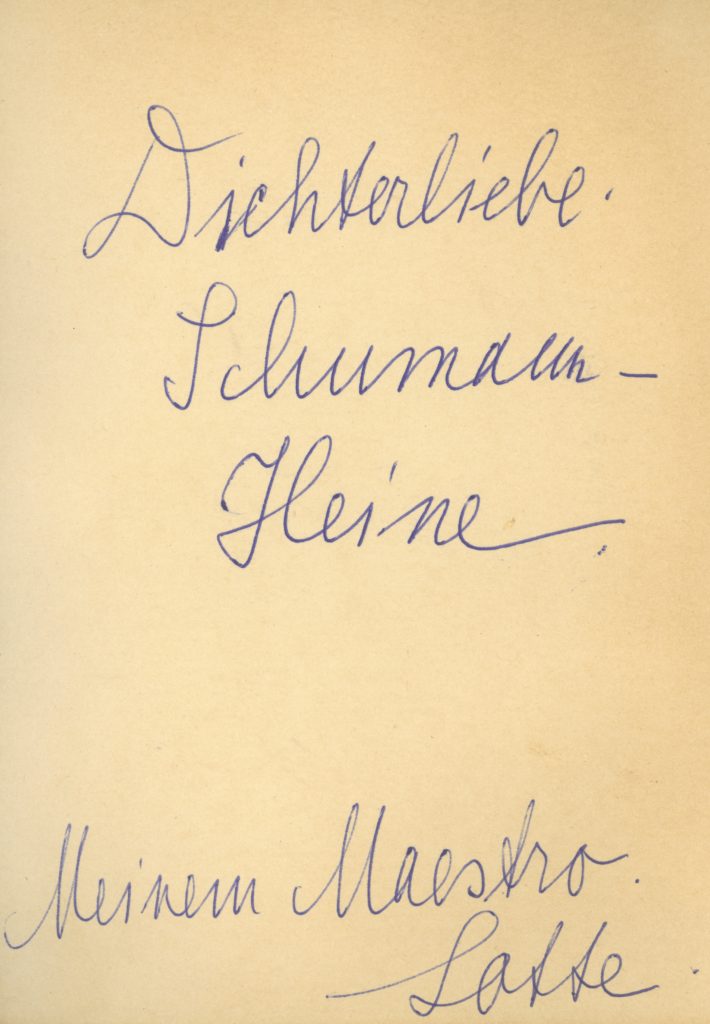
and dedication to Bruno Walter, her pianist on the Dichterliebe recording
Intro
As with Winterreise found on this site, Lehmann recorded the songs of Robert Schumann’s Dichterliebe, but instead of Paul Ulanowsky, Bruno Walter was the pianist. You’ll hear Pristine label’s refurbished 1941 Dichterliebe recording. In 1951 she recorded the Heinrich Heine poems used in the cycle; later drawing expressionistic impressions of each song. She revisited these and made color examples of many of them which you’ll find at the end of the cycle itself.
Excerpts from Lehmann’s suggestions for each song are drawn from her books More than Singing and Eighteen Song Cycles: A Study in Their Interpretation. They are aimed at a potential singer, but provide everyone with a bit of an introduction to each song. You’ll find them as a caption to each of Lehmann’s drawings.
Lehmann pointed out to viewers that she was not a professional artist:
“It is not as an accomplished painter that I want to exhibit my illustrations of the ‘Poet’s Love.’ I wanted to give visual expression to those songs which I have sung so often and have made my own as if they had been born from my heart and spirit. It is the singer who for once speaks to you not on the wings of song but on the wings of color and form.
I know that much is missing in technique. But what I want to say has really nothing to do with the demands of the painter’s technique. With a bold sweep I overrun the barriers and say to you: don’t you think I paint when I sing? Don’t I paint in various colors, in different shades the music and the word? If you ever felt this and that means: if you ever understood my art then please try to listen to my pictures.”
The following translations are based on those of Emily Ezust, found in her helpful “LiederNet Archive” website: http:/www.lieder.net/lieder/index.html
Thanks are due to Daisy C. Muralles, working at Special Collections, UCSB, for scanning/copying Lehmann’s drawings.
Below you can listen to Lehmann’s introduction to Dichterliebe.
We also offer Lehmann master classes for all but the final two songs of Dichterliebe.
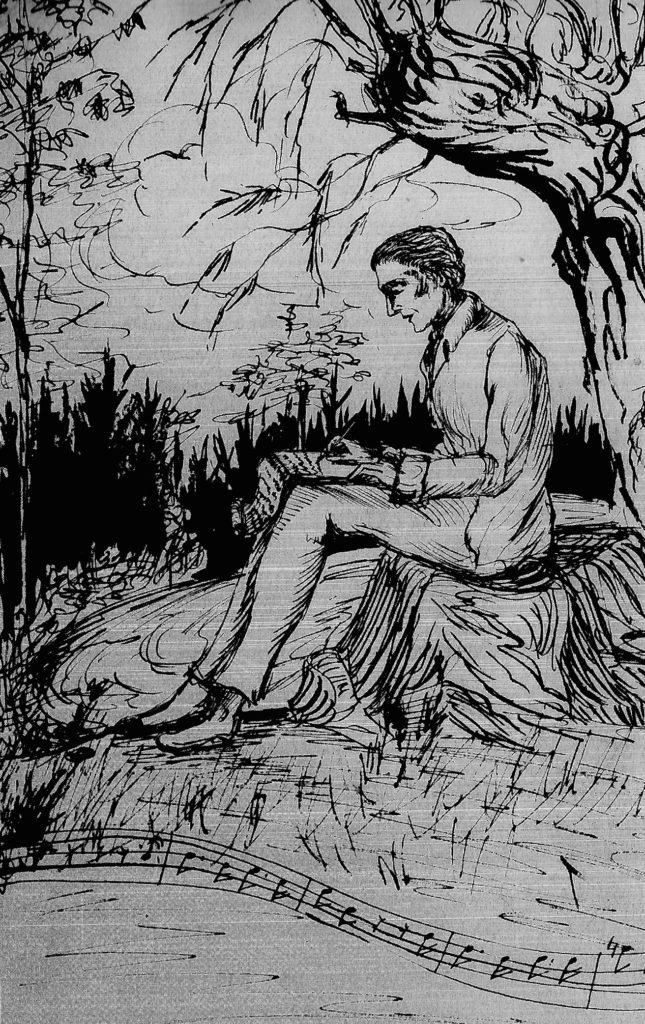
Im wunderschönen Monat Mai
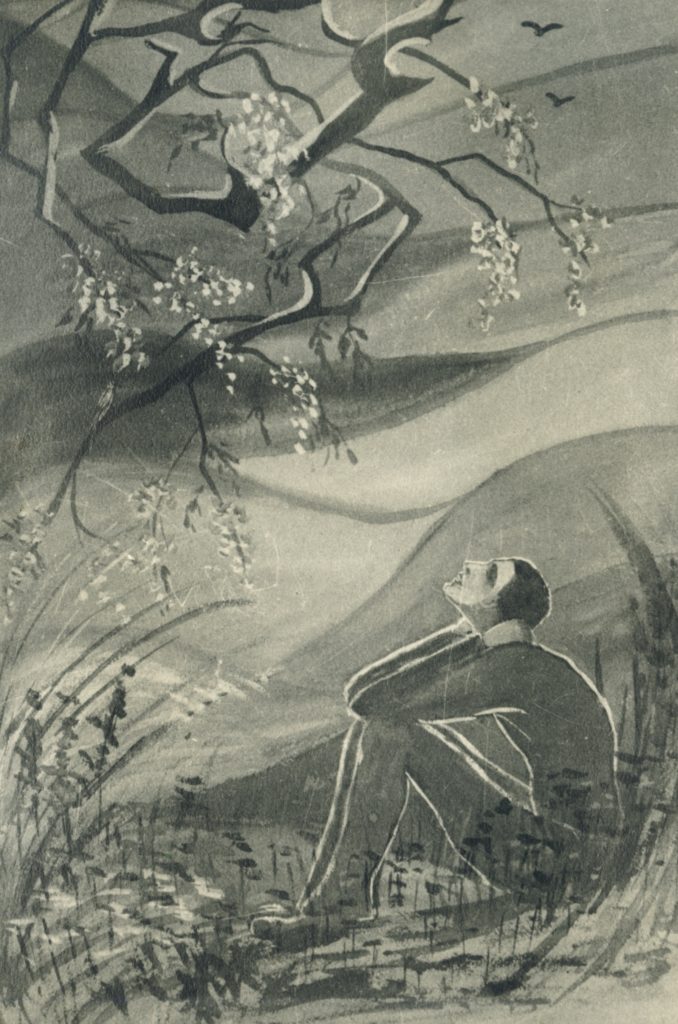
to a passionate exuberance in the second verse.
| Im wunderschönen Monat Mai, Als alle Knospen sprangen, Da ist in meinem Herzen Die Liebe aufgegangen. Im wunderschönen Monat Mai, Als alle Vögel sangen, Da hab’ ich ihr gestanden Mein Sehnen und Verlangen. |
| In the lovely month of May, When all buds burst open, There, from my heart Love burst forth. In the lovely month of May, When all the birds were singing, I confessed to her My longing and desire. |
Aus meinen Tränen sprießen
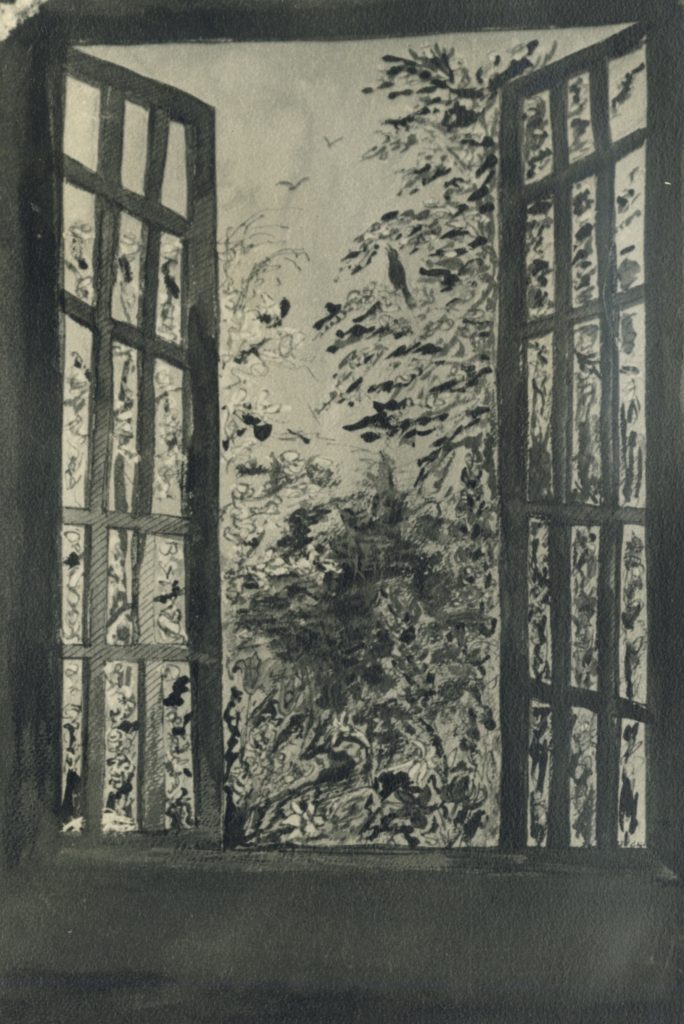
They are the sweet tears and trembling sighs of passionate desire.
| Aus meinen Tränen sprießen Viel blühende Blumen hervor, Und meine Seufzer werden Ein Nachtigallenchor. Und wenn du mich lieb hast, Kindchen, Schenk’ ich dir die Blumen all’, Und vor deinem Fenster soll klingen Das Lied der Nachtigall. |
| From my tears spring up Many blooming flowers, And my sighs become A chorus of nightingales. And if you love me, dear one, I will send you many flowers, And before your window shall sound The song of the nightingale. |
Die Rose, die Lilie, die Taube, die Sonne
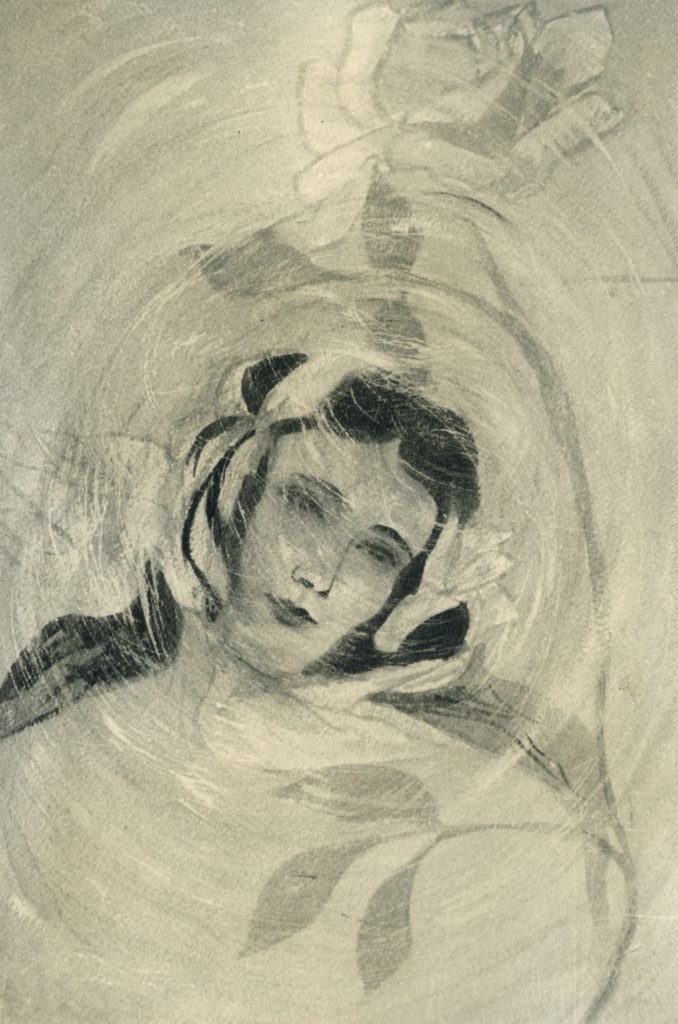
| Die Rose, die Lilie, die Taube, die Sonne, |
| Die liebt’ ich einst alle in Liebeswonne. |
| Ich lieb’ sie nicht mehr, ich liebe alleine |
| Die Kleine, die Feine, die Reine, die Eine; |
| Sie selber, aller Liebe Wonne, |
| Ist Rose und Lilie und Taube und Sonne. |
| Ich liebe alleine |
| Die Kleine, die Feine, die Reine, die Eine. |
| The rose, the lily, the dove, the sun, |
| I loved them all once in the joy of love. |
| I love them no more, I love only |
| The small, the fine, the pure, the ONE; |
| She herself, the delight of all love, |
| Is rose, and lily, and dove, and sun. |
| I love only |
| The small, the fine, the pure, the ONE. |
Wenn ich in deine Augen seh’
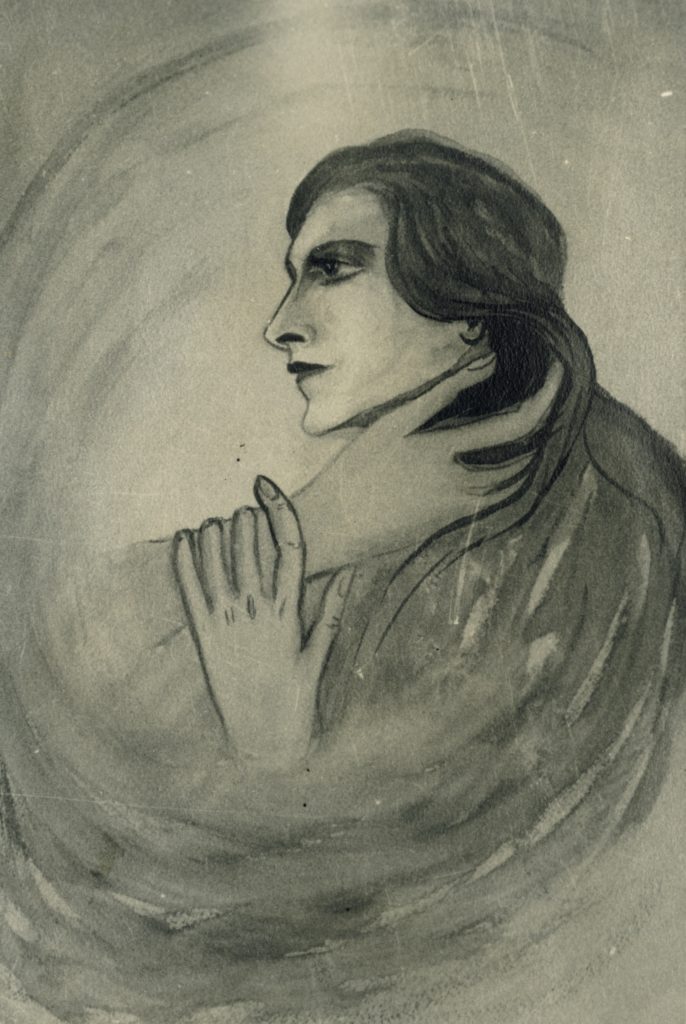
| Wenn ich in deine Augen seh’, |
| So schwindet all’ mein Leid und Weh; |
| Doch wenn ich küße deinen Mund, |
| So werd’ ich ganz und gar gesund. |
| Wenn ich mich lehn’ an deine Brust, |
| Kommt’s über mich wie Himmelslust; |
| Doch wenn du sprichst: ich liebe dich! |
| So muß ich weinen bitterlich. |
| When I gaze into your eyes, |
| All my pain and woe vanishes; |
| But when I kiss your lips, |
| Then I’ll be wholly and entirely healthy. |
| When I lay on your breast |
| I’m overcome with heavenly delight; |
| But when you say, “I love you!” |
| Then I must weep bitterly. |
Ich will meine Seele tauchen
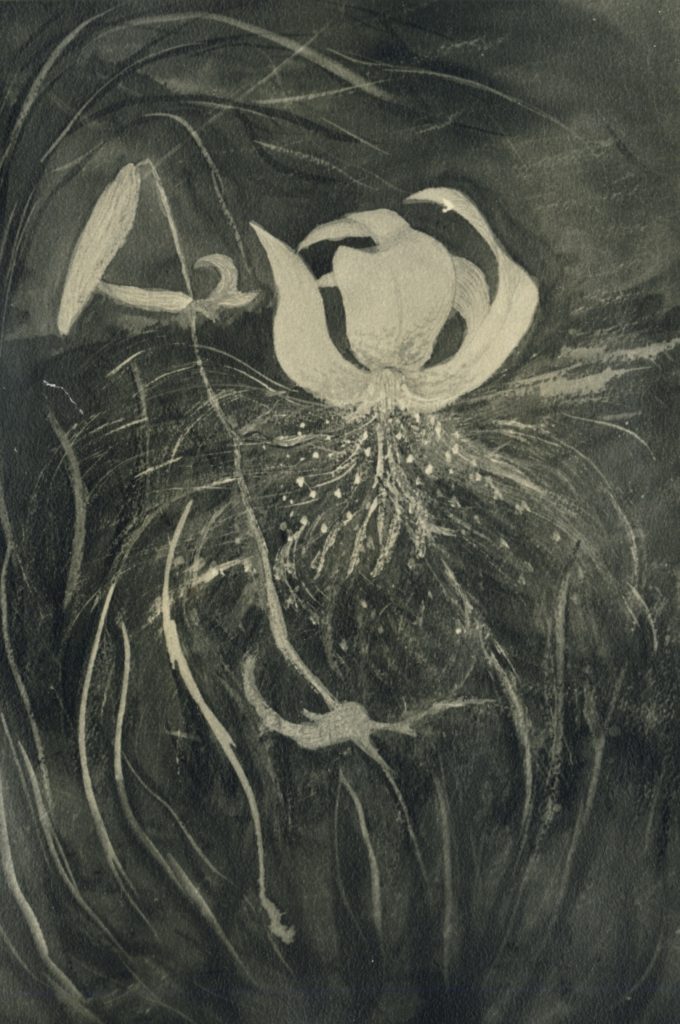
| Ich will meine Seele tauchen |
| In den Kelch der Lilie hinein; |
| Die Lilie soll klingend hauchen |
| Ein Lied von der Liebsten mein. |
| Das Lied soll schauern und beben |
| Wie der Kuß von ihrem Mund, |
| Den sie mir einst gegeben |
| In wunderbar süßer Stund’. |
| I want to immerse my soul |
| Into the cup of the lily; |
| The lily proclaims and breathes |
| A song of my beloved. |
| The song shudders and trembles |
| Like the kiss from her lips |
| That she once gave me |
| In that wonderfully sweet hour. |
Im Rhein, im heiligen Strome
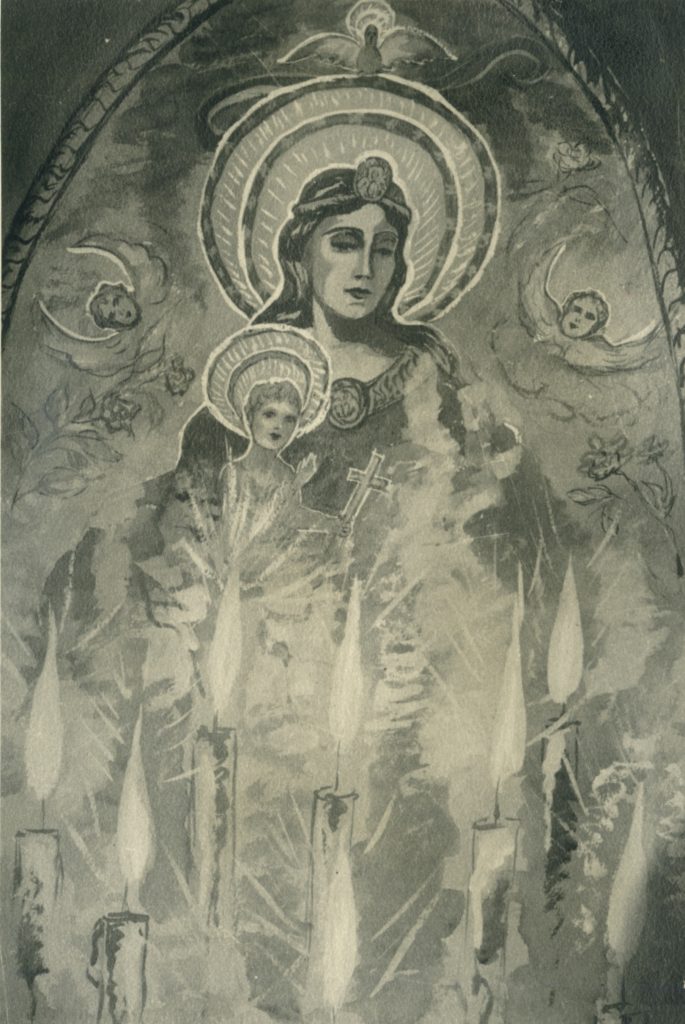
| Im Rhein, im heiligen Strome, |
| Da spiegelt sich in den Well’n |
| Mit seinem großen Dome |
| Das große, heil’ge Köln. |
| Im Dom da steht ein Bildnis, |
| Auf goldnem Leder gemalt; |
| In meines Lebens Wildnis |
| Hat’s freundlich hineingestrahlt. |
| Es schweben Blumen und Eng’lein |
| Um unsre liebe Frau; |
| Die Augen, die Lippen, die Wänglein, |
| Die gleichen der Liebsten genau. |
| In the Rhine, in that holy river, |
| It mirrors in its waves |
| With its grand cathedral |
| The great, holy city of Cologne. |
| In the cathedral stands a portrait, |
| Painted on golden leather; |
| Into my life’s wilderness |
| It has brightly shone. |
| Flowers and little angels float |
| Around our beloved Lady; |
| The eyes, the lips, the cheeks, |
| They resemble my beloved’s exactly. |
Ich grolle nicht
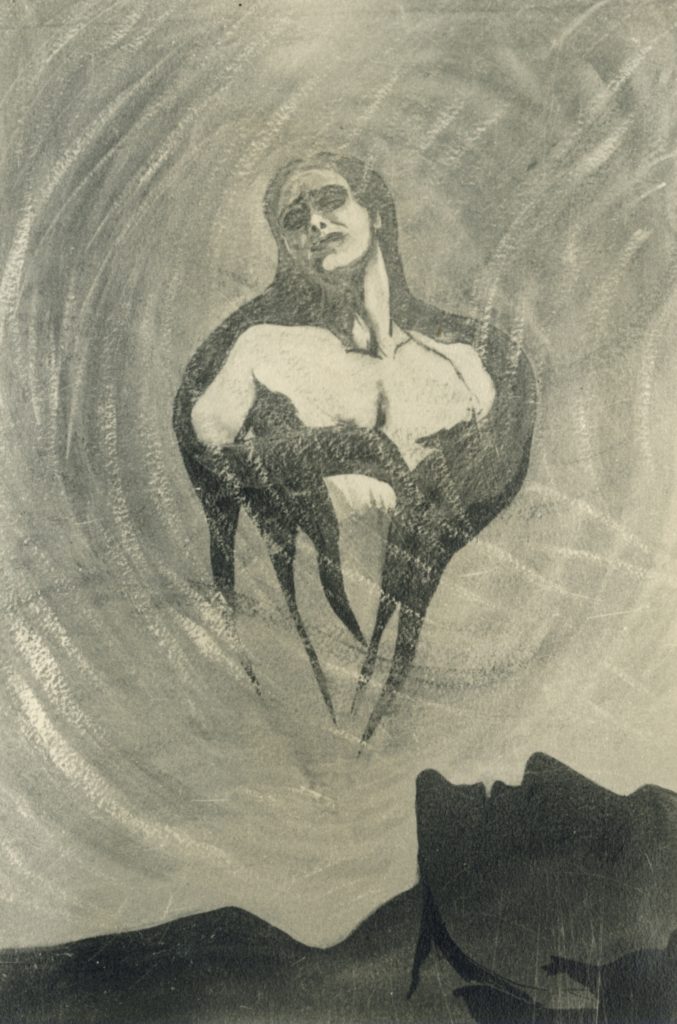
| Ich grolle nicht, und wenn das Herz auch bricht, |
| Ewig verlor’nes Lieb! Ich grolle nicht. |
| Wie du auch strahlst in Diamantenpracht, |
| Es fällt kein Strahl in deines Herzens Nacht. |
| Das weiß ich längst. |
| Ich grolle nicht, und wenn das Herz auch bricht, |
| Ich sah dich ja im Traume, |
| Und sah die Nacht in deines Herzens Raume, |
| Und sah die Schlang’, die dir am Herzen frißt, |
| Ich sah, mein Lieb, wie sehr du elend bist. |
| I bear no grudge, even though my heart’s breaking, |
| My love is lost forever! I bear no grudge. |
| How you do shine in diamond splendor, |
| No beam falls into the night of your heart. |
| I know that now. |
| I bear no grudge, even though my heart’s breaking, |
| I saw you there in a dream, |
| And saw the night in the chamber of your heart, |
| And saw the snake that feeds upon your heart; |
| I saw, my love, how truly miserable you are. |
Und wüßten’s die Blumen, die kleinen
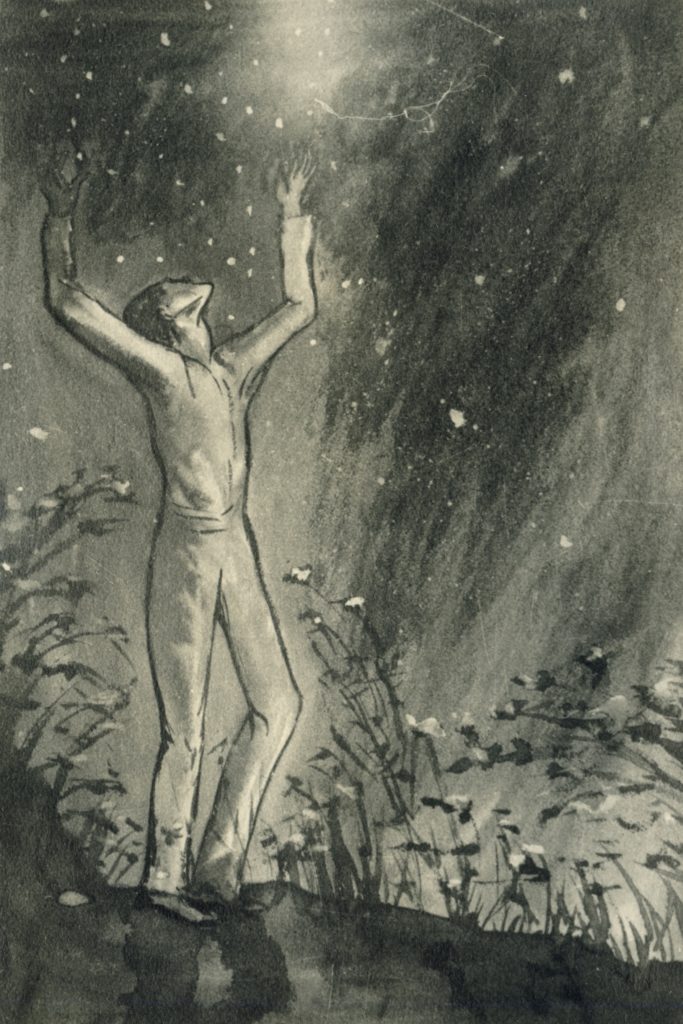
| Und wüßten’s die Blumen, die kleinen, |
| Wie tief verwundet mein Herz, |
| Sie würden mit mir weinen, |
| Zu heilen meinen Schmerz. |
| Und wüßten’s die Nachtigallen, |
| Wie ich so traurig und krank, |
| Sie ließen fröhlich erschallen |
| Erquickenden Gesang. |
| Und wüßten’s sie mein Wehe, |
| Die goldenen Sternelein, |
| Sie kämen aus ihrer Höhe, |
| Und sprächen Trost mir ein. |
| Sie alle können’s nicht wissen, |
| Nur eine kennt meinen Schmerz; |
| Sie hat ja selbst zerrissen, |
| Zerrissen mir das Herz. |
| And if the blooms, the small ones, knew |
| How deeply wounded my heart is, |
| They would weep with me |
| To heal my pain. |
| And if the nightingales knew, |
| How sad and ill I am, |
| They would let forth merrily |
| A refreshing song. |
| And if they knew my woe, |
| The little golden stars, |
| They would come down from their heights, |
| And speak consolation to me. |
| But all of them could not know this, |
| Only one knows my pain; |
| She herself has indeed torn, |
| Torn my heart in two. |
Das ist ein Flöten und Geigen
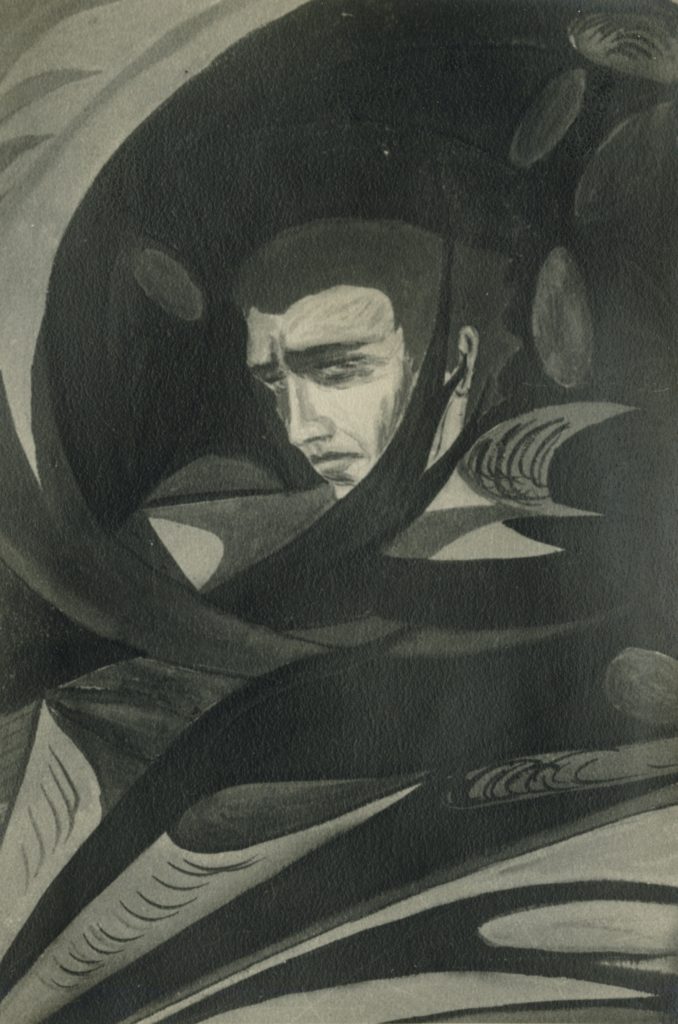
| Das ist ein Flöten und Geigen, |
| Trompeten schmettern darein; |
| Da tanzt wohl den Hochzeitreigen |
| Die Herzallerliebste mein. |
| Das ist ein Klingen und Dröhnen, |
| Ein Pauken und ein Schalmei’n; |
| Dazwischen schluchzen und stöhnen |
| Die lieblichen Engelein. |
| There is a fluting and fiddling, |
| With trumpets blaring; |
| In a wedding dance whirls |
| My heart’s whole love. |
| There is a ringing and roaring, |
| A drumming and sounding of shawms; |
| In between which sob and moan |
| The lovely little angels. |
Hör’ ich das Liedchen klingen
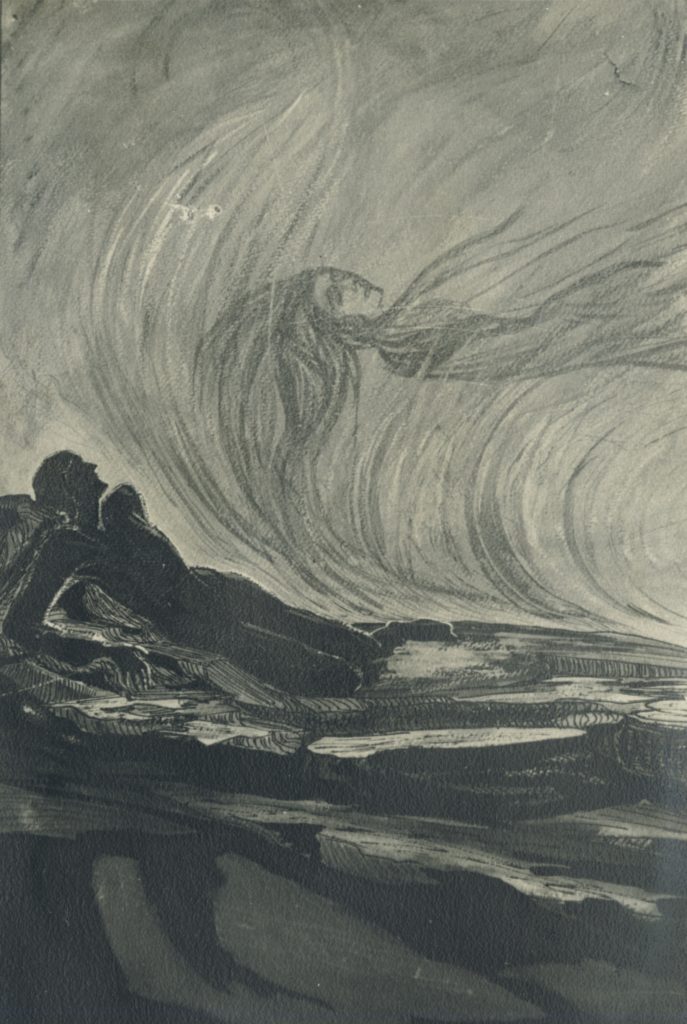
| Hör’ ich das Liedchen klingen, |
| Das einst die Liebste sang, |
| So will mir die Brust zerspringen |
| Von wildem Schmerzendrang. |
| Es treibt mich ein dunkles Sehnen |
| Hinauf zur Waldeshöh’, |
| Dort löst sich auf in Tränen |
| Mein übergroßes Weh’. |
| I hear the little song sounding, |
| That once my beloved sang, |
| And my heart will break |
| From the savage penetrating pain. |
| A dark longing drives me |
| Up into the forest heights, |
| There my tears dissolve |
| My colossal woe. |
Ein Jüngling liebt ein Mädchen
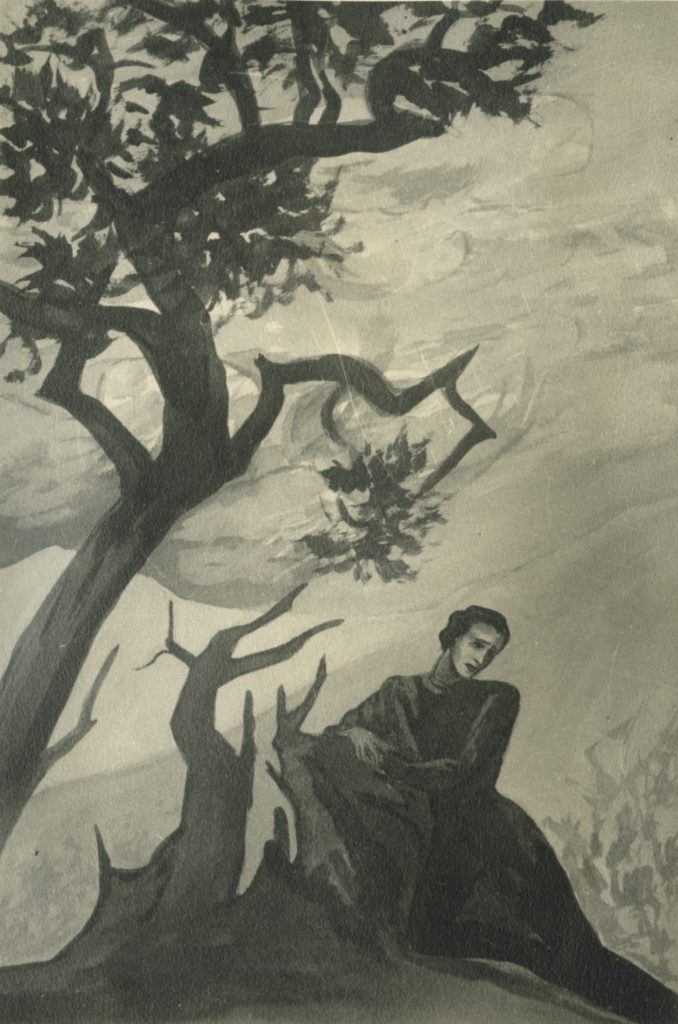
| Ein Jüngling liebt ein Mädchen, |
| Die hat einen andern erwählt; |
| Der andre liebt eine andre, |
| Und hat sich mit dieser vermählt. |
| Das Mädchen nimmt aus Ärger |
| Den ersten besten Mann, |
| Der ihr in den Weg gelaufen; |
| Der Jüngling ist übel dran. |
| Es ist eine alte Geschichte, |
| Doch bleibt sie immer neu; |
| Und wem sie just passieret, |
| Dem bricht das Herz entzwei. |
| A young man loves a maiden, |
| Who has chosen another; |
| This other man loves yet another, |
| And has wed that one. |
| The first girl takes out of anger |
| The first best man, |
| That happened to cross her path; |
| Our young man is sick at this. |
| It is an old story, |
| Yet it remains ever new; |
| But to whom this befalls, |
| It breaks the heart in two. |
Am leuchtende Sommermorgen
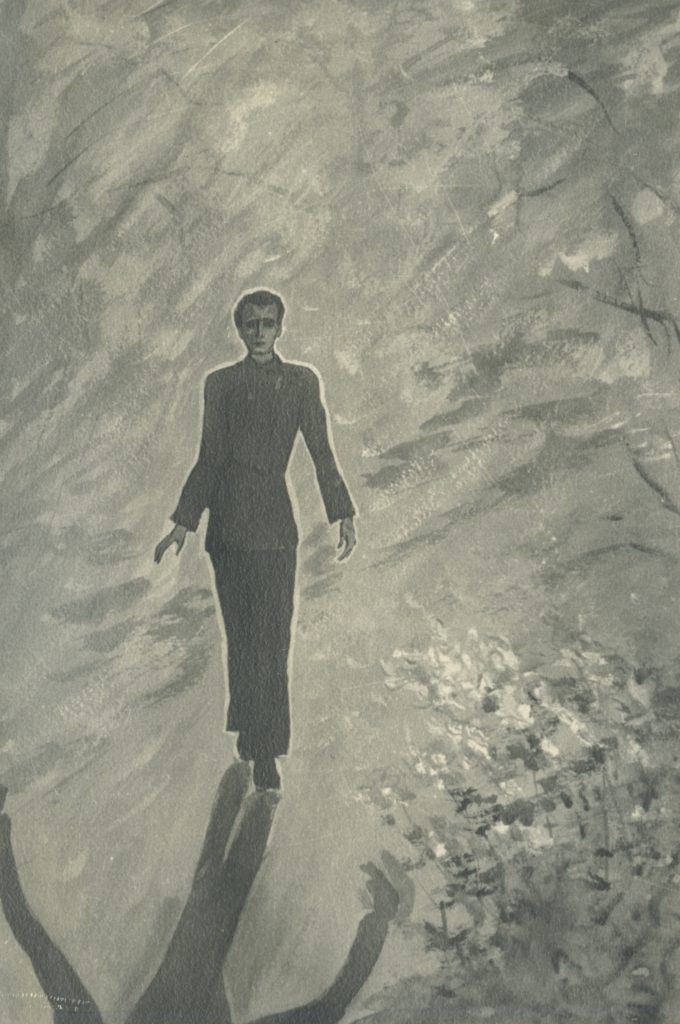
| Am leuchtenden Sommermorgen |
| Geh’ ich im Garten herum. |
| Es flüstern und sprechen die Blumen, |
| Ich aber wandle stumm. |
| Es flüstern und sprechen die Blumen, |
| Und schau’n mitleidig mich an: |
| Sei unserer Schwester nicht böse, |
| Du trauriger blasser Mann. |
| On a shining summer morning |
| I wander around the garden. |
| The flowers are whispering and speaking, |
| I, however, wander mute. |
| The flowers are whispering and speaking |
| And look at me with pity: |
| “Do not be angry with our sister, |
| You sad pale man.” |
Ich hab’ im Traum geweinet
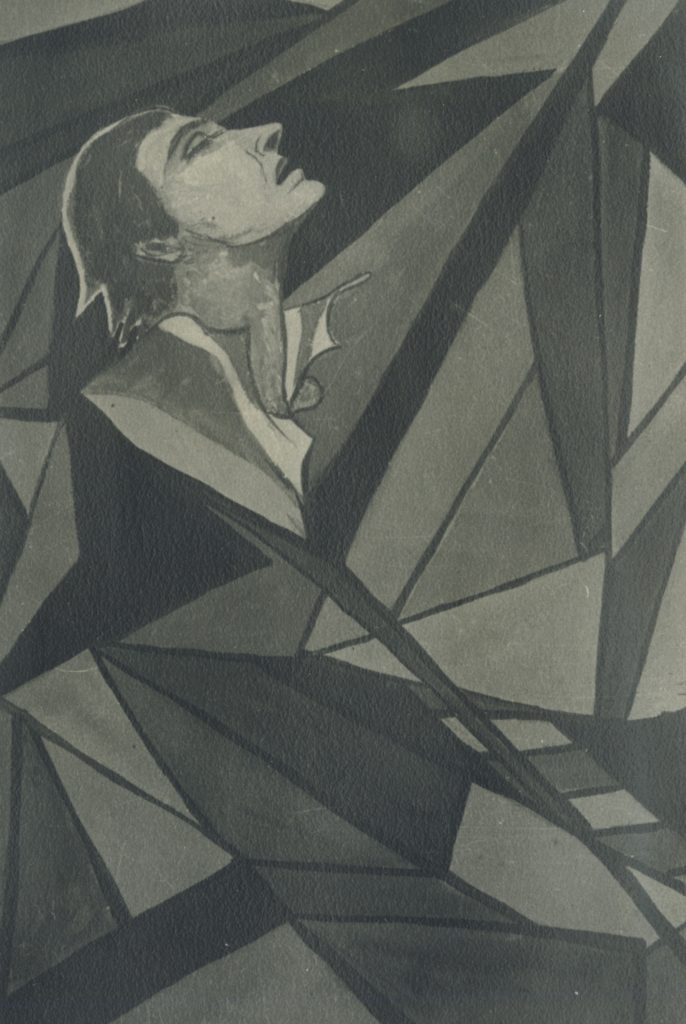
| Ich hab’ im Traum geweinet, |
| Mir träumte, du lägest im Grab. |
| Ich wachte auf, und die Träne |
| Floß noch von der Wange herab. |
| Ich hab’ im Traum geweinet, |
| Mir träumt’, du verließest mich. |
| Ich wachte auf, und ich weinte |
| Noch lange bitterlich. |
| Ich hab’ im Traum geweinet, |
| Mir träumte, du wär’st mir noch gut. |
| Ich wachte auf, und noch immer |
| Strömt meine Tränenflut. |
| I wept in my dream, |
| I dreamed, you lay in a grave. |
| I awoke, and my tears |
| Still flowed down my cheeks. |
| I wept in my dream, |
| I dreamed you had left me. |
| I awoke and I cried |
| Bitterly for a long while. |
| I wept in my dream, |
| I dreamed you were still true to me. |
| I awoke, and still |
| Streamed my flood of tears. |
Allnächtlich im Traume
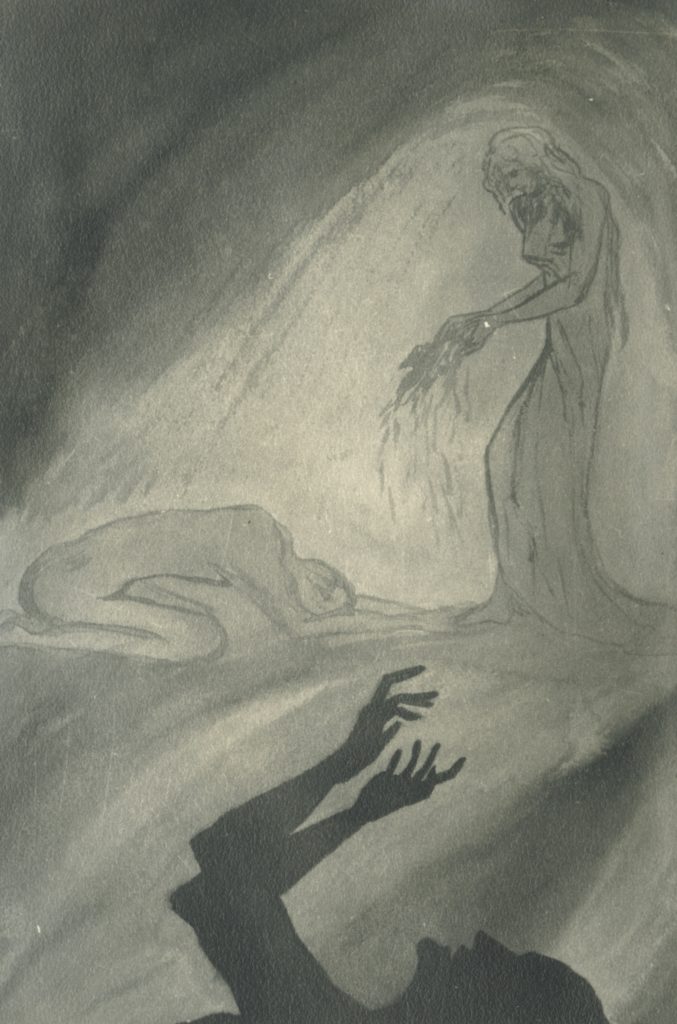
| Allnächtlich im Traume seh’ ich dich |
| Und sehe dich freundlich grüßen, |
| Und laut aufweinend stürz’ ich mich |
| Zu deinen süßen Füßen. |
| Du siehest mich an wehmütiglich |
| Und schüttelst das blonde Köpfchen; |
| Aus deinen Augen schleichen sich |
| Die Perlentränentröpfchen. |
| Du sagst mir heimlich ein leises Wort |
| Und gibst mir den Strauß von Zypressen. |
| Ich wache auf, und der Strauß ist fort, |
| Und’s Wort hab’ ich vergessen. |
| Nightly I see you in my dreams |
| And I see you greet me, friendly, |
| And crying out loudly, I throw myself |
| At your sweet feet. |
| You look at me sorrowfully |
| And shake your little blonde head; |
| From your eyes creep forth |
| The pearly teardrops. |
| You say to me secretly a soft word, |
| And give me a branch of cypress. |
| I awake, and the branch is gone, |
| And I have forgotten the word. |
Aus alten Märchen winkt es
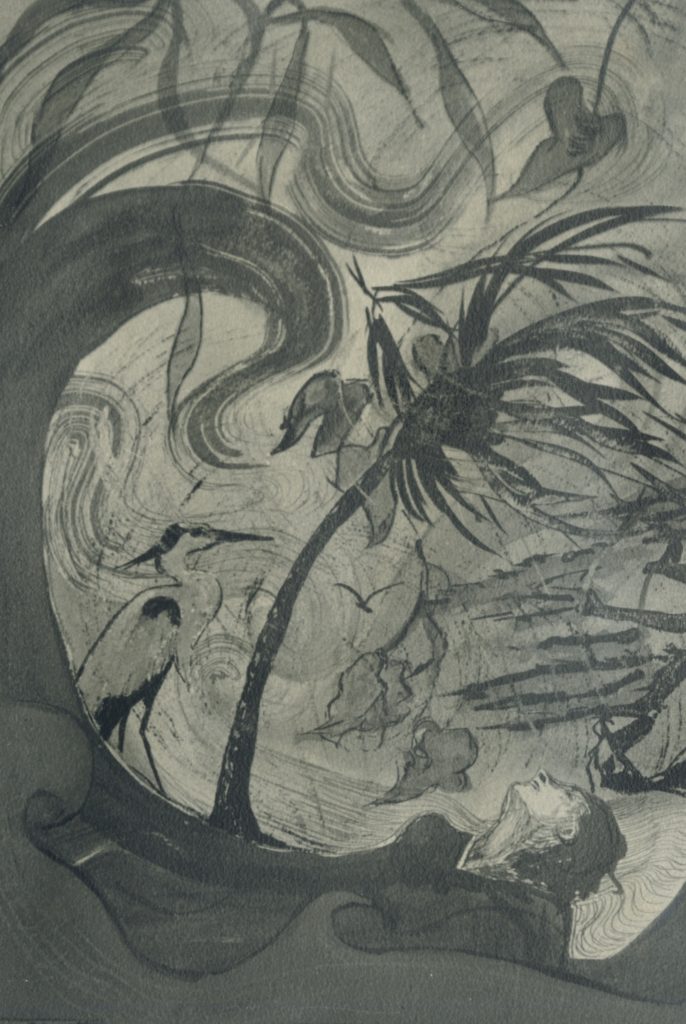
We don’t have an audio of LL teaching this Lied.
| Aus alten Märchen winkt es |
| Hervor mit weißer Hand, |
| Da singt es und da klingt es |
| Von einem Zauberland; |
| Wo bunte Blumen blühen |
| Im gold’nen Abendlicht, |
| Und lieblich duftend glühen, |
| Mit bräutlichem Gesicht; |
| Und grüne Bäume singen |
| Uralte Melodei’n, |
| Die Lüfte heimlich klingen, |
| Und Vögel schmettern drein; |
| Und Nebelbilder steigen |
| Wohl aus der Erd’ hervor, |
| Und tanzen luft’gen Reigen |
| Im wunderlichen Chor; |
| Und blaue Funken brennen |
| An jedem Blatt und Reis, |
| Und rote Lichter rennen |
| Im irren, wirren Kreis; |
| Und laute Quellen brechen |
| Aus wildem Marmorstein. |
| Und seltsam in den Bächen |
| Strahlt fort der Widerschein. |
| Ach! könnt’ ich dorthin kommen, |
| Und dort mein Herz erfreu’n, |
| Und aller Qual entnommen, |
| Und frei und selig sein! |
| Ach! jenes Land der Wonne, |
| Das seh’ ich oft im Traum, |
| Doch kommt die Morgensonne, |
| Zerfließt’s wie eitel Schaum. |
| From old fairy tales beckons |
| To me a white hand, |
| There’s a singing and sounding |
| Of a magical land; |
| Where colorful flowers bloom |
| In golden twilight, |
| And glow lovely and fragrant |
| With their bridal visage; |
| And green trees sing |
| Ancient melodies, |
| The breezes sound secretly, |
| And birds warble; |
| And mist-figures rise |
| Even from out of the earth, |
| And dance airy round-dances |
| In a wondrous chorus; |
| And blue sparks burn |
| On every leaf and twig, |
| And red lights run |
| In a mad, chaotic circle; |
| And loud springs break |
| Out of wild marble stone. |
| And weirdly in the streams, |
| Shine forth the reflections. |
| Ah! If I could enter there, |
| And there delight my heart, |
| And give up all my agony, |
| And be free and blissful! |
| Ah! This land of bliss, |
| That I see so often in the dream, |
| But when the morning sun comes, |
| It melts like mere foam. |
Die alten, bösen Lieder
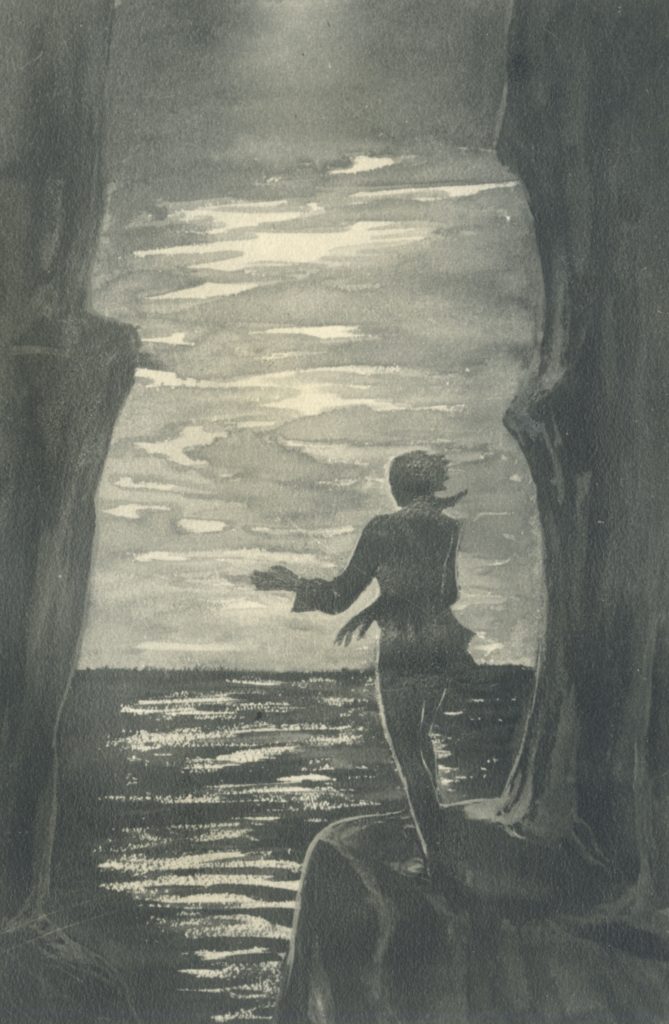
the ocean is closing for all eternity over your love.
We don’t have an audio of LL teaching this Lied.
| Die alten, bösen Lieder, |
| Die Träume bos und arg, |
| Die laßt uns jetzt begraben, |
| Holt einen großen Sarg. |
| Hinein leg’ ich gar manches, |
| Doch sag’ ich noch nicht, was; |
| Der Sarg muß sein noch größer, |
| Wie’s Heidelberger Faß. |
| Und holt eine Totenbahre, |
| Und Bretter fest und dick; |
| Auch muß sie sein noch länger, |
| Als wie zu Mainz die Brück’. |
| Und holt mir auch zwölf Riesen, |
| Die müssen noch stärker sein |
| Als wie der starke Christoph |
| Im Dom zu Köln am Rhein. |
| Die sollen den Sarg forttragen, |
| Und senken ins Meer hinab; |
| Denn solchem großen Sarge |
| Gebührt ein großes Grab. |
| Wißt ihr, warum der Sarg wohl |
| So groß und schwer mag sein? |
| Ich senkt auch meine Liebe |
| Und meinen Schmerz hinein. |
| The old, angry songs, |
| The angry terrible dreams, |
| Let us now bury them, |
| Fetch a huge coffin. |
| In it I’ll lay many things, |
| But I won’t say quite what; |
| The coffin must be even larger, |
| Than the Heidelberg keg. |
| And fetch a death bier, |
| And planks firm and thick; |
| They must be still longer, |
| Than the bridge to Mainz. |
| And fetch me too, twelve giants, |
| They must be even stronger |
| Than the strong St. Christopher |
| In the Cologne Cathedral on the Rhine. |
| They should carry the coffin away, |
| And sink it down deep in the sea; |
| Since such a huge coffin |
| Deserves an immense grave. |
| Do you know why the coffin |
| Must be so large and heavy? |
| I sank also my love |
| And my pain within it. |
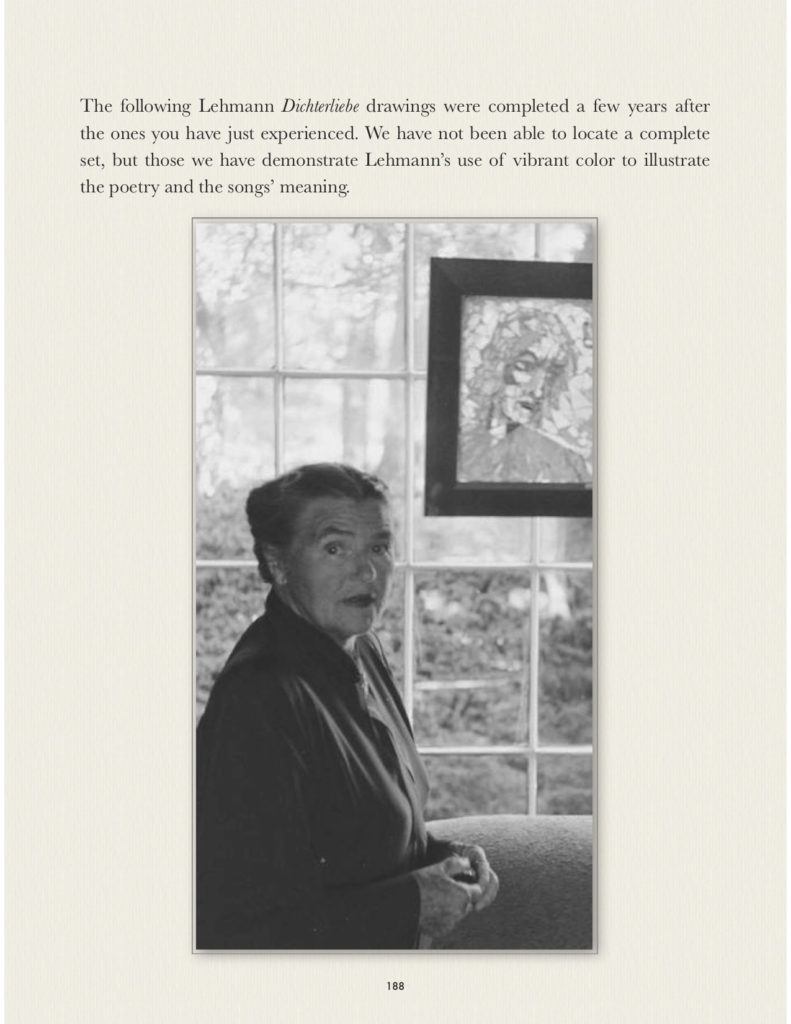
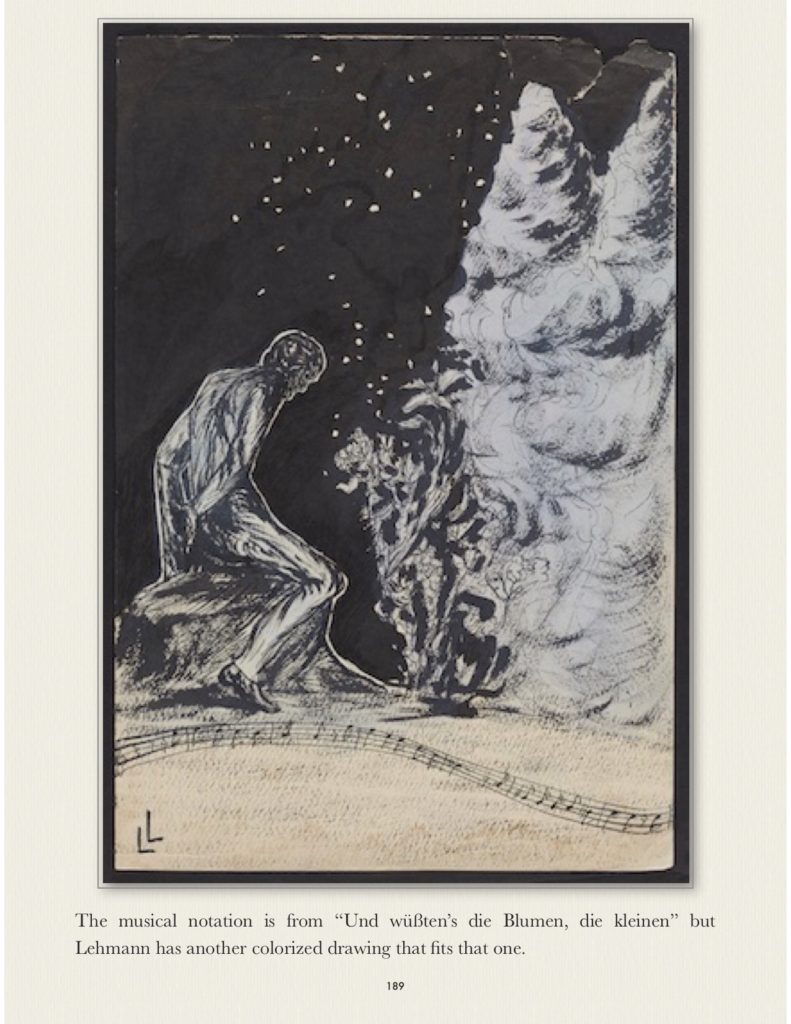
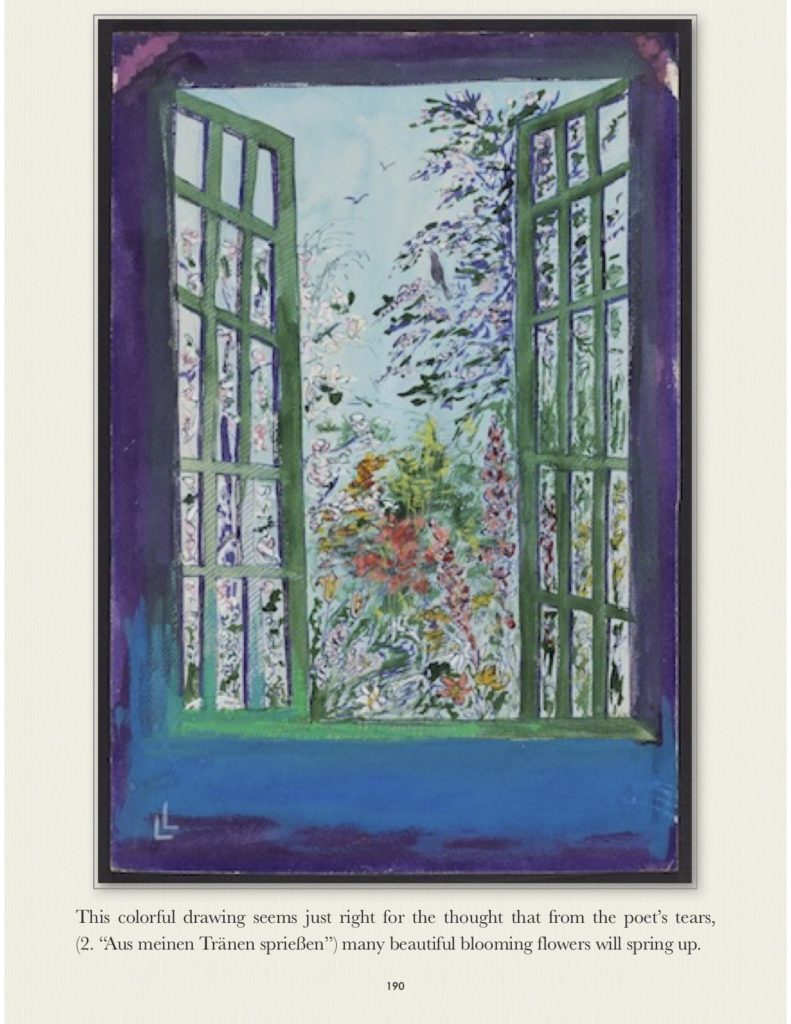
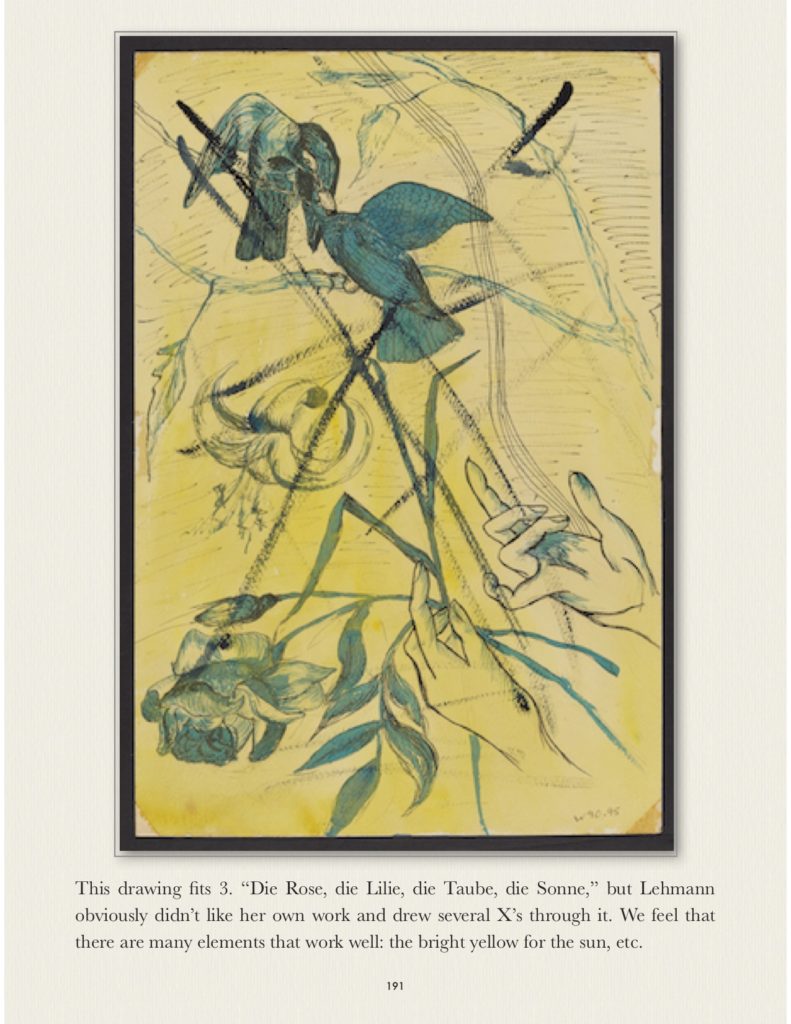
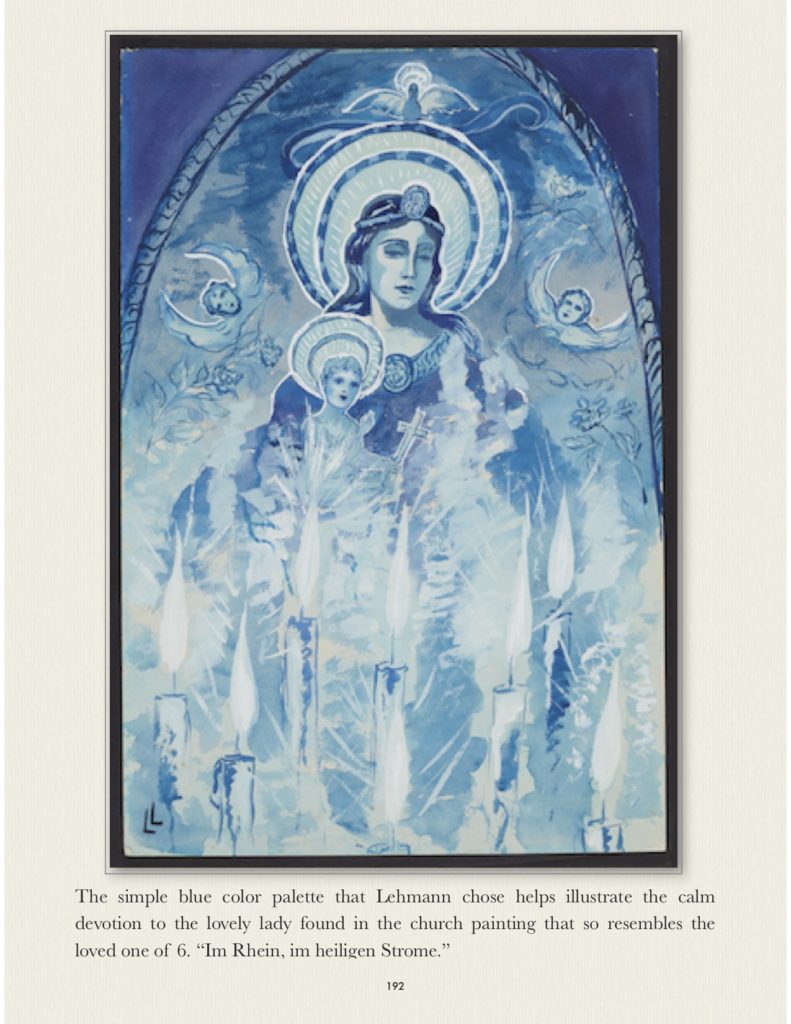
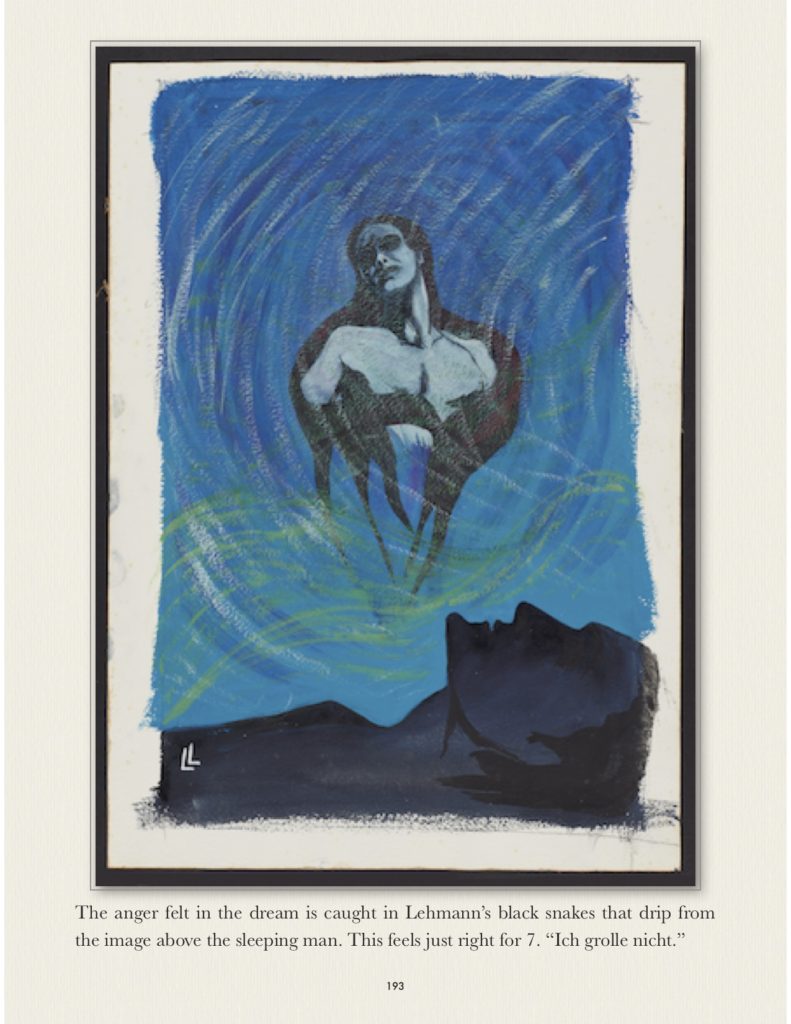
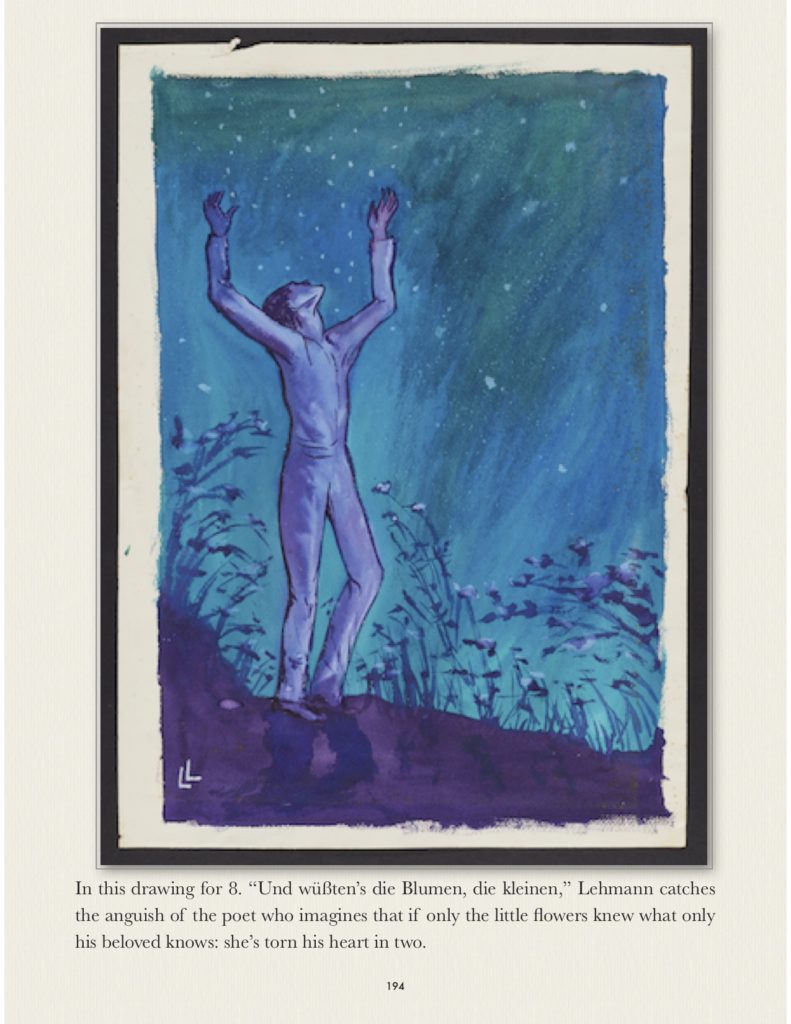
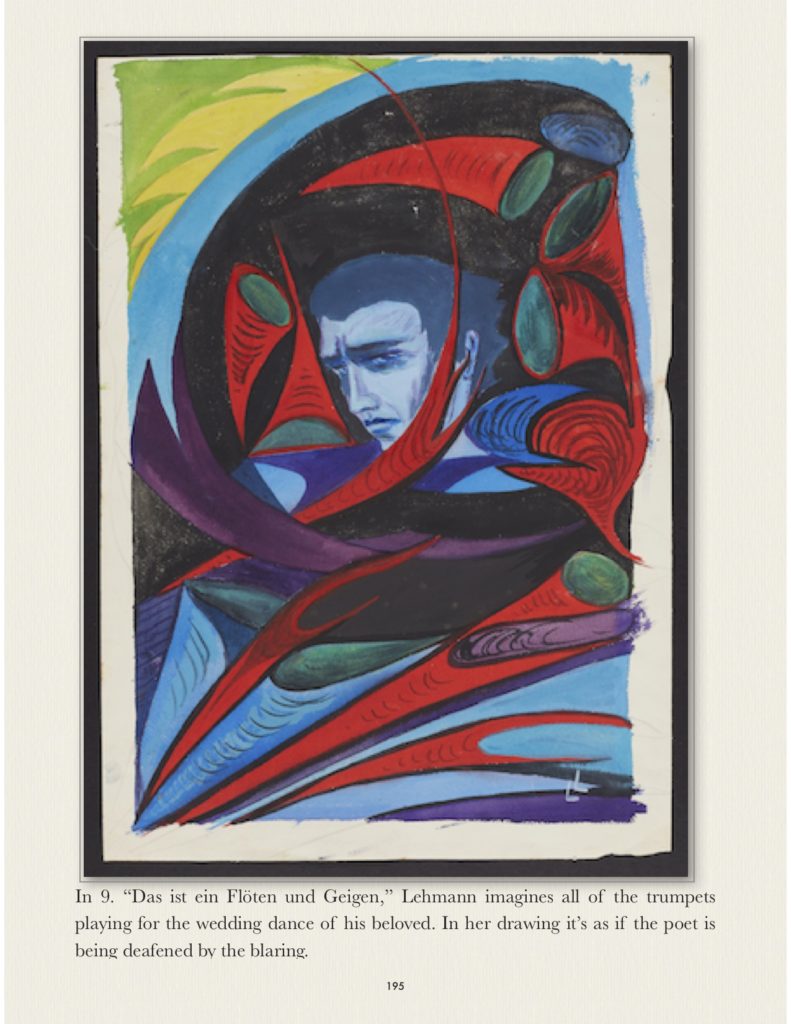
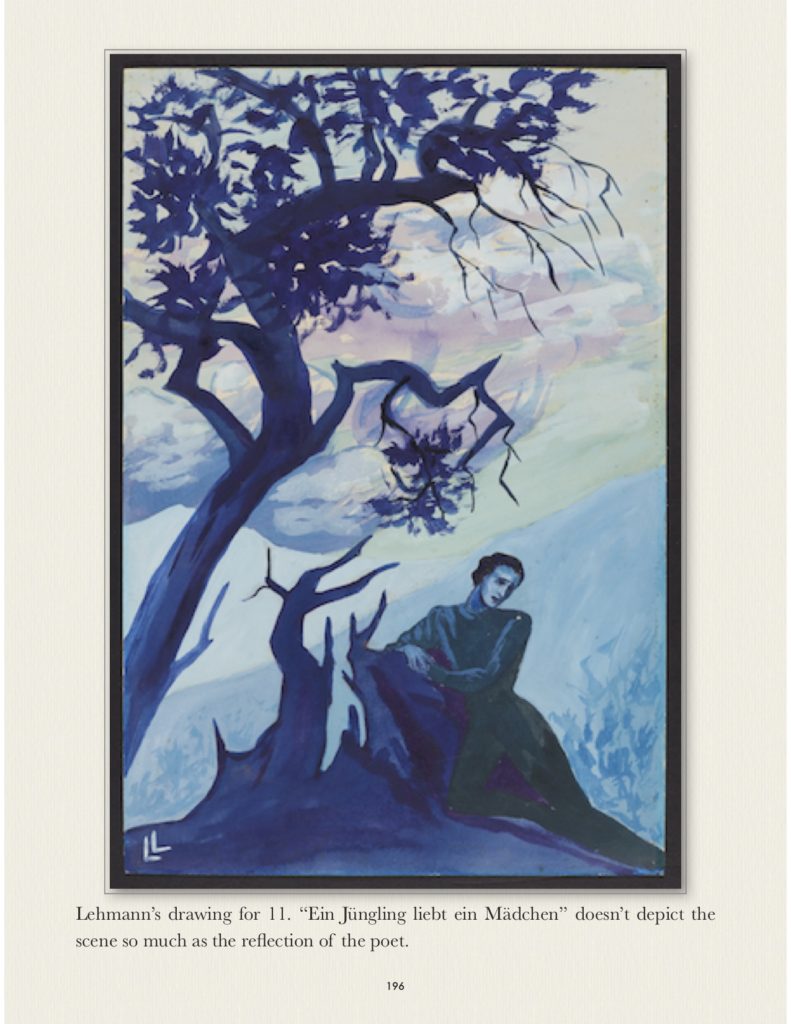
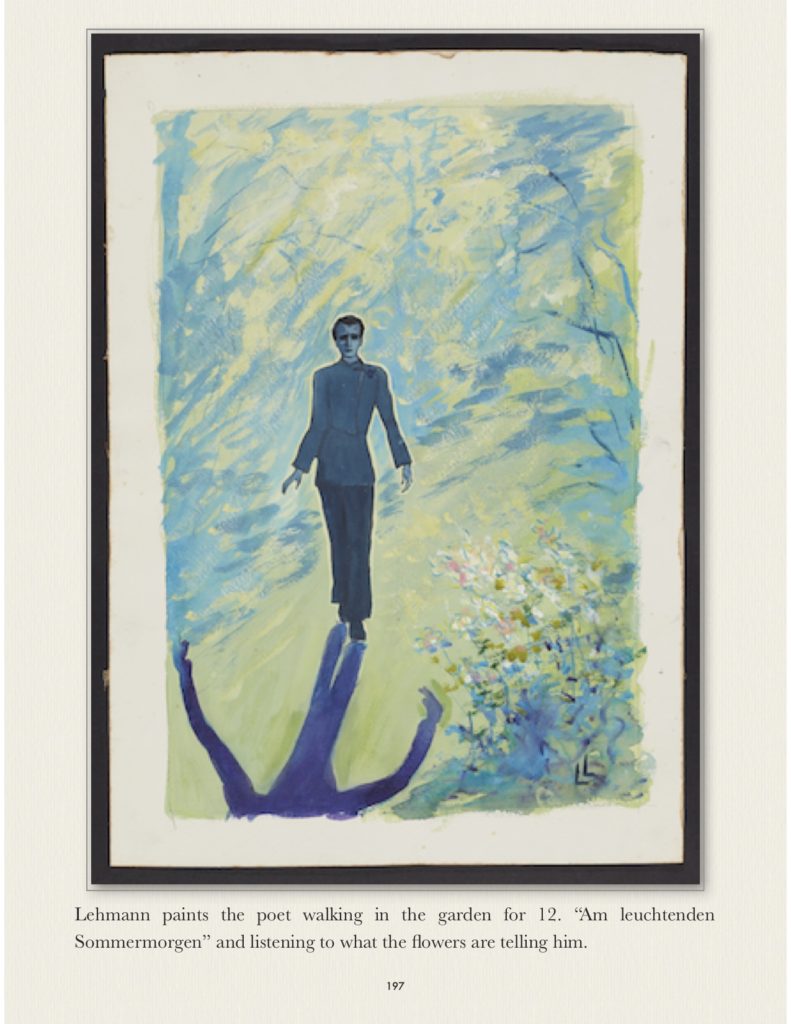
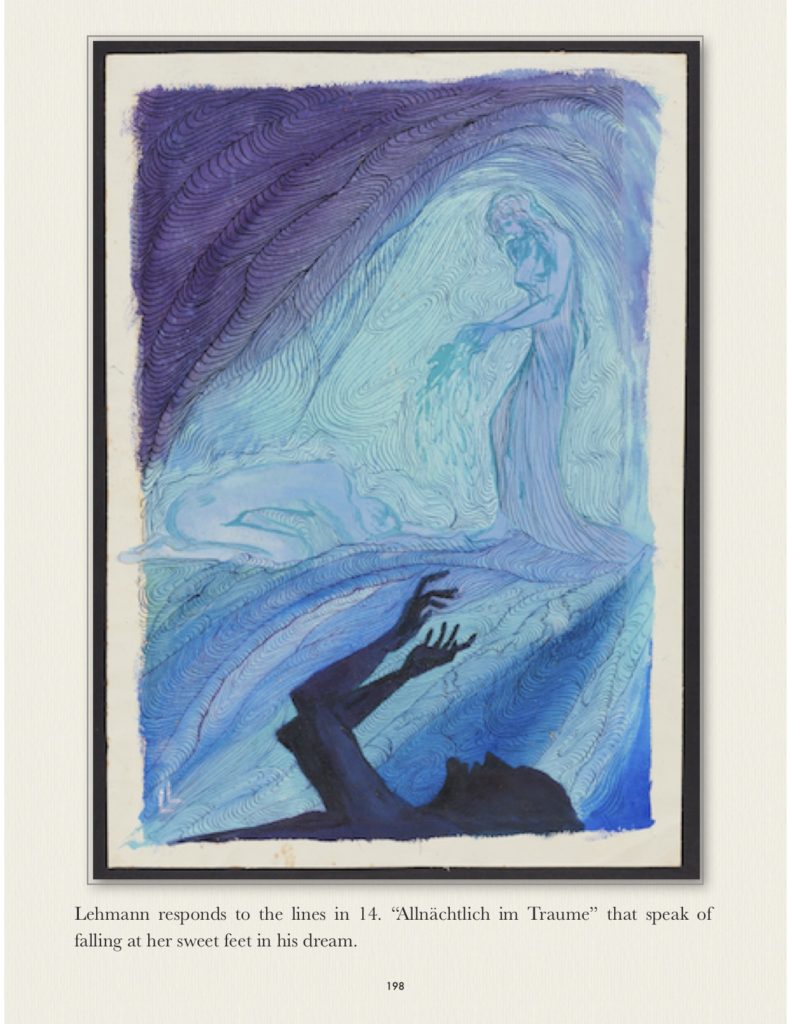
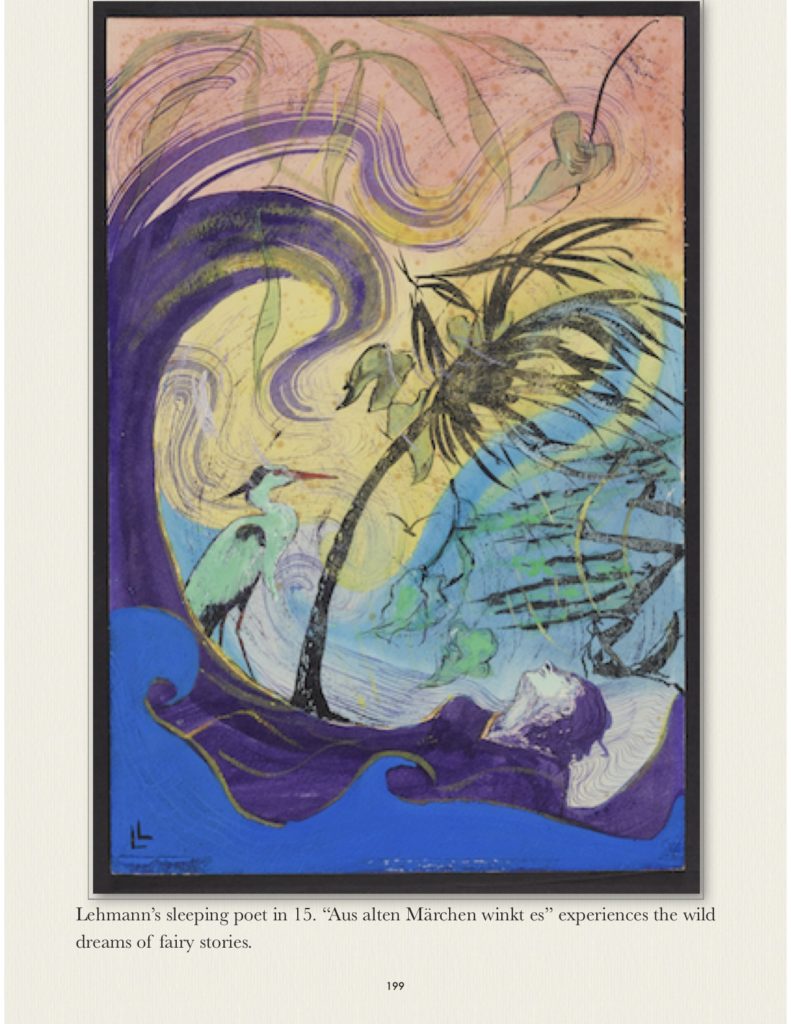
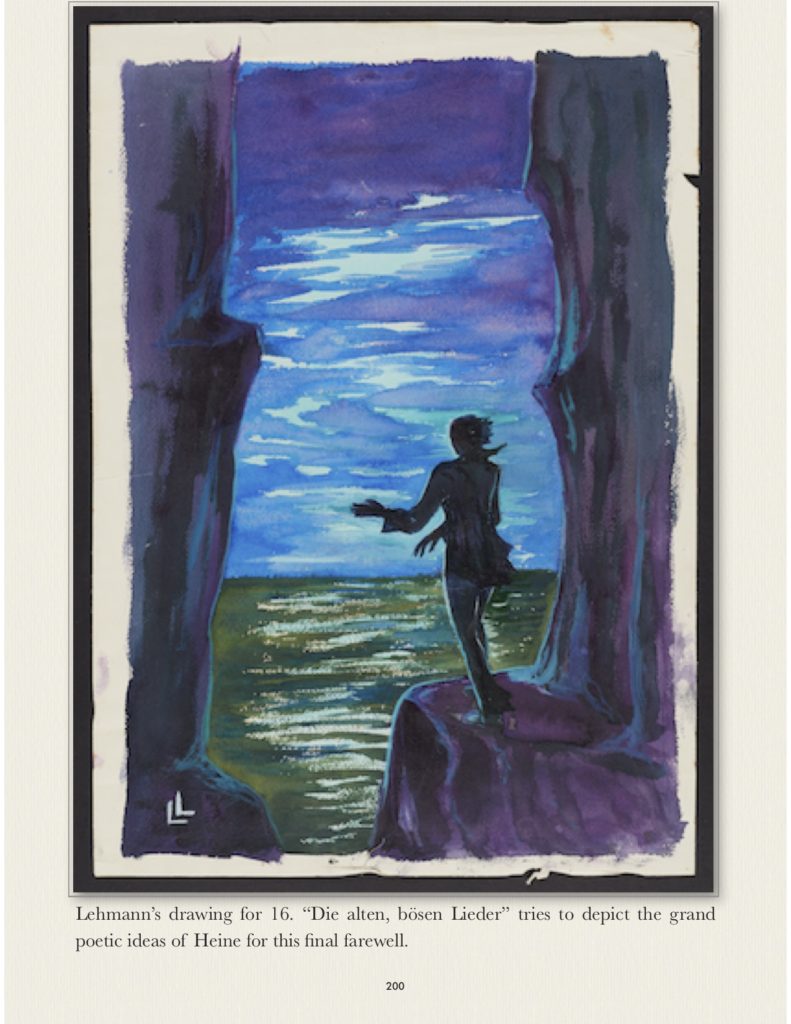
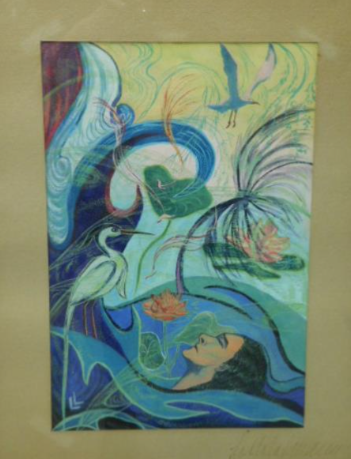
The following Dichterliebe alternate drawings are at this point only available in black and white.
